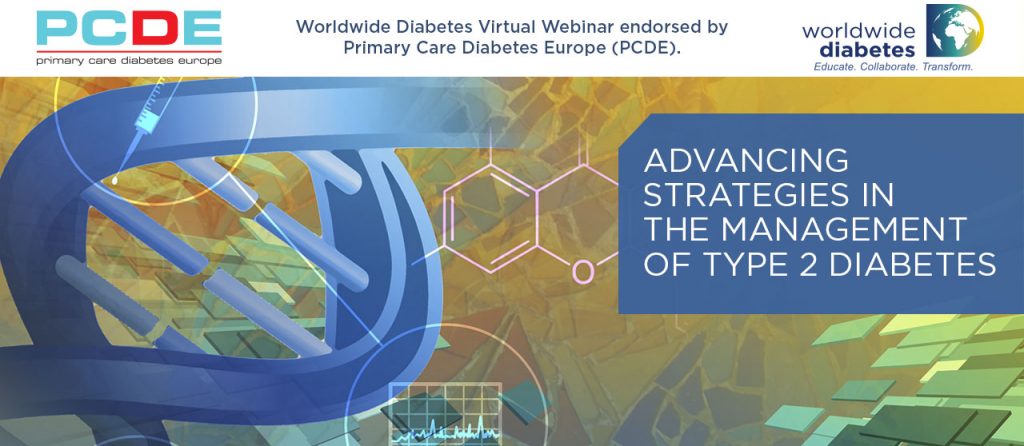
COVID-19 and DPP-4 Inhibitors
Nothing in recent history has affected our medical system and our patients like the COVID-19 pandemic. The virus is particularly dangerous for our patients, with 60% of critically ill patients suffering from pre-existent comorbidities, including diabetes. This significantly increases the risk of intubation and death.1,2
To address the urgent need for effective treatments, we have begun repurposing “old” medications based on their mechanisms of action and their potential value in treating COVID-19. Among anti-diabetic agents, dipeptidyl peptidase-4 inhibitors (DPP-4i) are thought to possess – beside their hypoglycemic effects – other beneficial actions against the virus.
For instance, sitagliptin also demonstrates immunoregulatory and anti-inflammatory effects by suppressing chemokine and interleukin-6 (IL-6) production.3,4,5 It has been suggested that by binding to the SARS-CoV-2 spike glycoprotein S1, it may reduce COVID-19 virus entry into target cells.6 In addition, by reducing inflammation, sitagliptin may improve clinical outcomes. This could be particularly valuable for patients with type 2 diabetes.7,8,9,10
Solerte et al reported the effects of sitagliptin treatment in hospitalized patients with COVID-19 and type 2 diabetes in a multicenter, case-controlled, retrospective, observational study. All patients were symptomatic with pneumonia and oxygen saturation <95% in ambient air or while receiving oxygen support. Glucose control was similar in the two groups.8
Patients treated with sitagliptin demonstrated reduced mortality (18% vs. 37%; hazard ratio 0.44 [95% CI 0.29–0.66]; P<0.0001), improved clinical outcomes (60% vs. 38%; P<0.0001) and a higher number of hospital discharges (120 vs. 89; P<0.0008) compared with patients receiving the standard of care. While this is promising, it should be noted that this was a retrospective observational study with all the limitations of this type of trial. A randomized, placebo-controlled trial is underway.
Do you have questions about COVID-19 and diabetes and potential treatments? Please leave a comment below.
____________________________
1 Grasselli G et al. Baseline Characteristics and Outcomes of 1591 Patients Infected With SARS-CoV-2 Admitted to ICUs of the Lombardy Region, Italy. JAMA. 2020;323(16):1574-1581.
2 Fadini GP et al. Prevalence and impact of diabetes among people infected with SARS-CoV-2. J Endocrinol Invest. 2020;43:867-869.
3 Dubé MP et al. A randomized, double-blinded, placebo-controlled trial of sitagliptin for reducing inflammation and immune activation in treated and suppressed human immunodeficiency virus infection. Clin Infect Dis. 2019;69:165-1172.
4 Makdissi A et al. Sitagliptin exerts an anti-inflammatory action. J Clin Endocrinol Metab. 2012; 97:3333–3341.
5 Malvandi AM et al. Sitagliptin favorably modulates immune-relevant pathways in human beta cells. Pharmacol Res. 2019;148:104405.
6 Vankadari N et al. (COVID-19) coronavirus: glycan shield and structure prediction of spike glycoprotein and its interaction with human CD26. Emerg Microbes Infect. 2020;9:601-604.
7 Drucker DJ. Coronavirus infections and type 2 diabetes-shared pathways with therapeutic implications. Endocr Rev. 2020;41.
8 Iacobellis G. COVID-19 and diabetes: can DPP4 inhibition play a role? Diabetes Res Clin Pract. 2020;162:108125.
9 Solerte SB. Dipeptidyl peptidase-4 (DPP4) inhibition in COVID-19. Acta Diabetol. 2020;57:779-783.
10 Strollo R, Pozzilli P. DPP4 inhibition: preventing SARS-CoV-2 infection and/or progression of COVID-19? Diabetes Metab Res Rev. 2020; e3330.
COMMENTS
REPLIES
There are no comments on this post yet.
